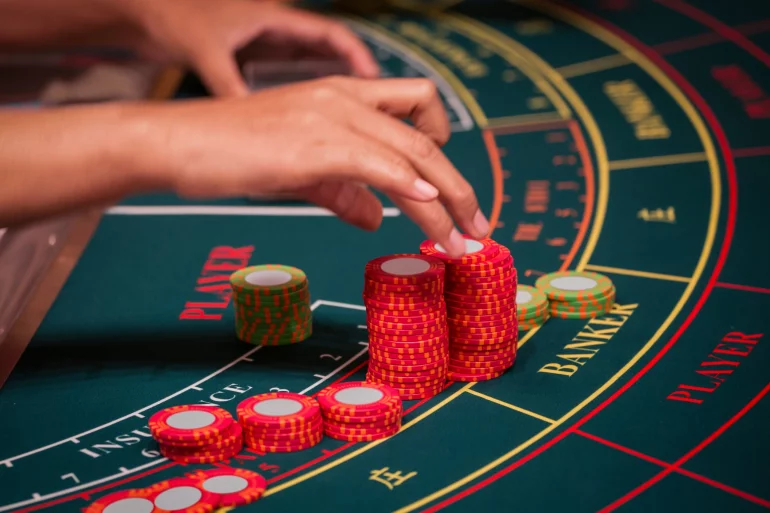
At the time, this type of cheating involving casino employees was so widespread that such cases were recorded in casinos around the world. Not so long ago, the disclosure of this conspiracy involved the FBI, the Canadian national police, and agents from independent organizations to ensure gambling's safety. As a result, several dozen dealers working in different casinos were detected.
The organizer of this fraud was a criminal group known as the "Tran Organization," connected with the Vietnamese mafia.
The Idea behind the Fraud
This fraud itself is pretty simple. It was carried out at the tables for mini-baccarat because it required only one group of players and a dealer.
A few players recorded the order of discarded cards. As the game had six or eight decks, they remembered the order of about fifty cards.
Then a dealer shuffled all the cards in a shoe without changing the order of that group's cards. Any experienced dealer knows that learning how to do it discreetly is not tricky. Then he inserted the cards in a shoe, and the game started again, except that the cheaters knew the cards on the table at some point.
In other words, it was sequencing with absolute precision, which allowed them to make big winning bets in a few hands.
Since the game was usually played at tables with higher limits (up to several tens of thousands of dollars) and the probability of loss was excluded, they managed to accumulate large banks in just a few minutes. One shoe could be enough to leave the casino with over one hundred thousand dollars.
How Did the Cheaters Act?
The perfect execution of this fraud required a few highlights. First, it was necessary to fix the exact order of the cards before a false shuffle. This was elementary because, in almost all casinos, baccarat players have special cards to mark the results of previous hands.
Thus, casinos encourage players to think that tracing the cards and developing a winning strategy is possible. However, as you can see, cheaters found other uses for them. It turned out that the casinos simplified their lives.
They also had to place these cards successfully. Usually, they were either at the beginning or the end of the shoe because it was easier for a dealer to implement his plan and for the rest of the cheaters to know when the card they wanted came.
The Cheaters' Roles in the Fraud
As we mentioned above, dealers do not need to be magicians to do a false shuffle. They stirred many cards during their training, honing their skills. Over time, they feel the weight of cards, and learning this kind of art is easy. In extreme cases, they used various methods of distracting inspectors or pit bosses who suspected nothing.
Taking the card from a shoe was usually watched by a particular cheater, giving others indications. As soon as their group's first card was out, they made a joint bet after his sign. Usually, they did not allow themselves to win in all distributions, especially if they knew it would be a draw. This could cause too early suspicions of the casino management.
The Finale
As a rule, they could do from five to ten winning hands. It depended on how many cards the dealer could "charge," as they quickly determined the beginning of this group and the game situation. When these cards were out of the game, cheaters continued to make big bets, but some were placed on the player and others on a banker, risking only a draw.
This cheating, like the others acting under this scenario, was detected, as the human factor is usually reflected in greed, infighting between players, envy, love for luxury, and other human weaknesses. Nevertheless, we can confidently say that similar ventures are still in casinos.








































